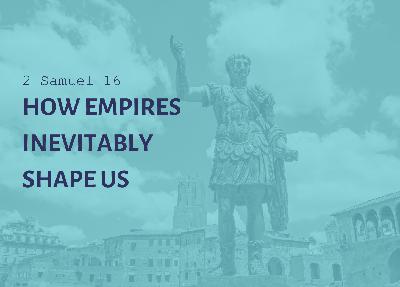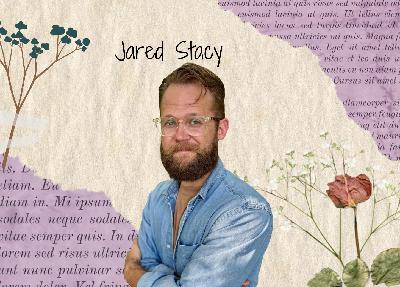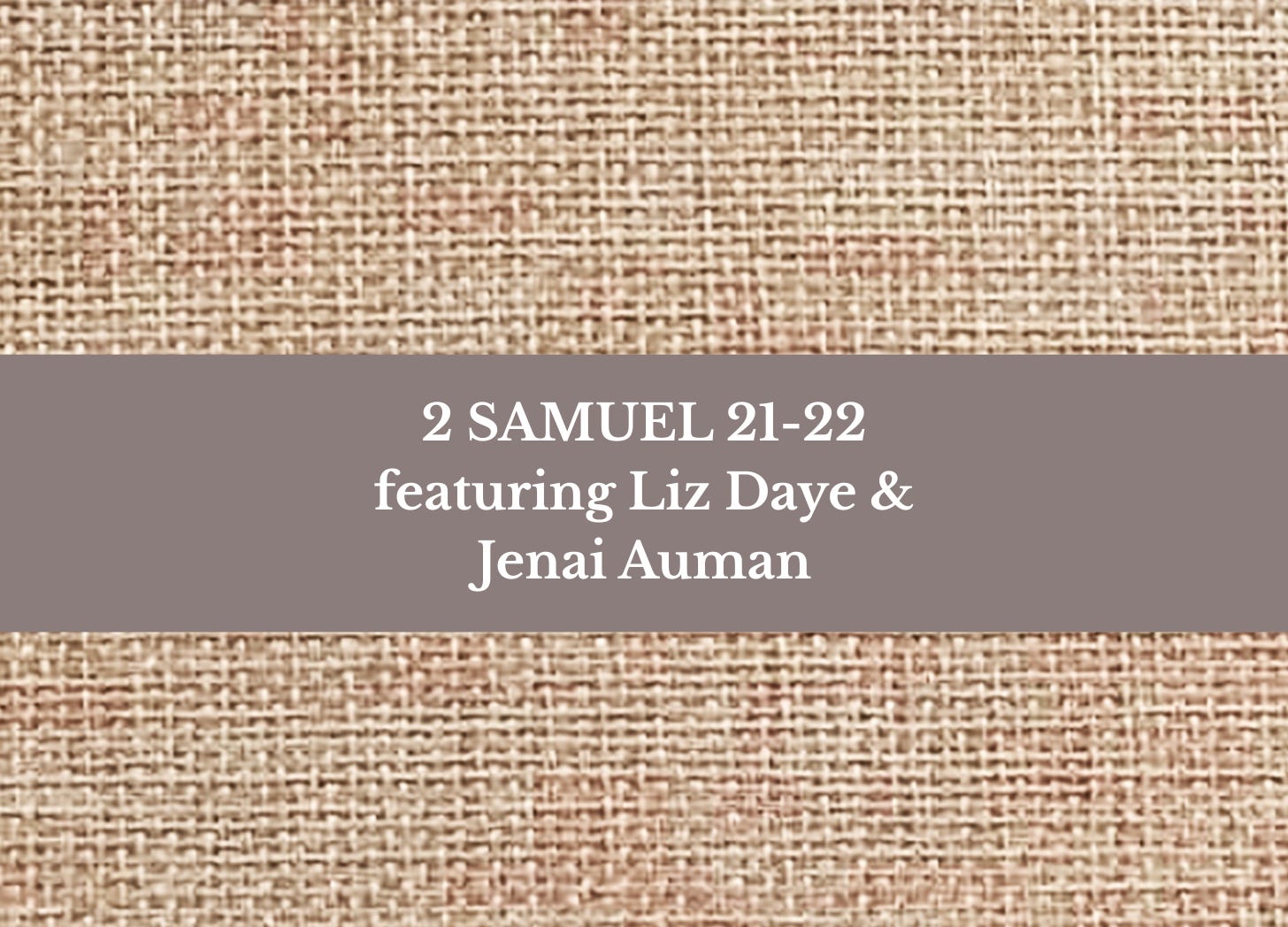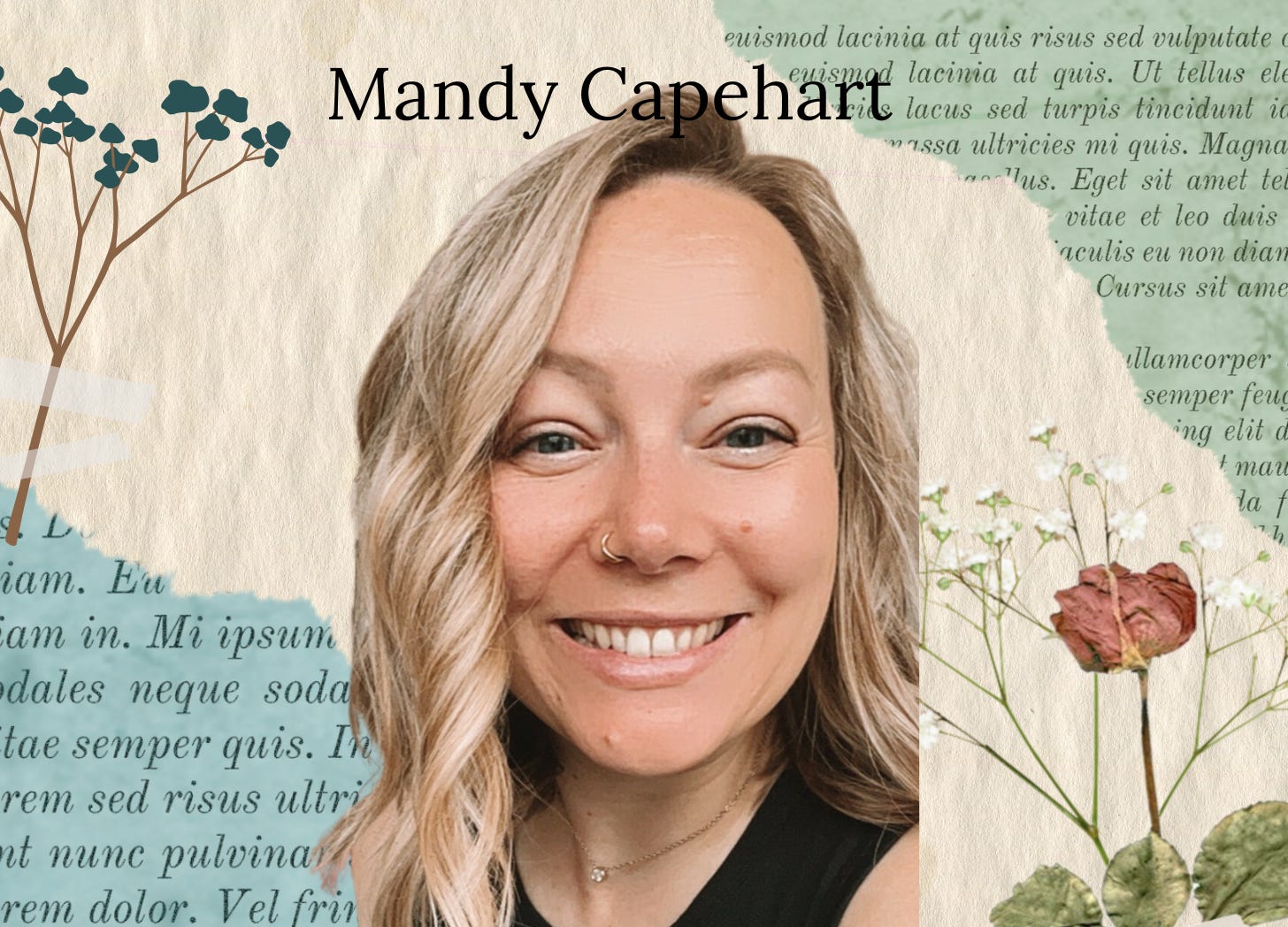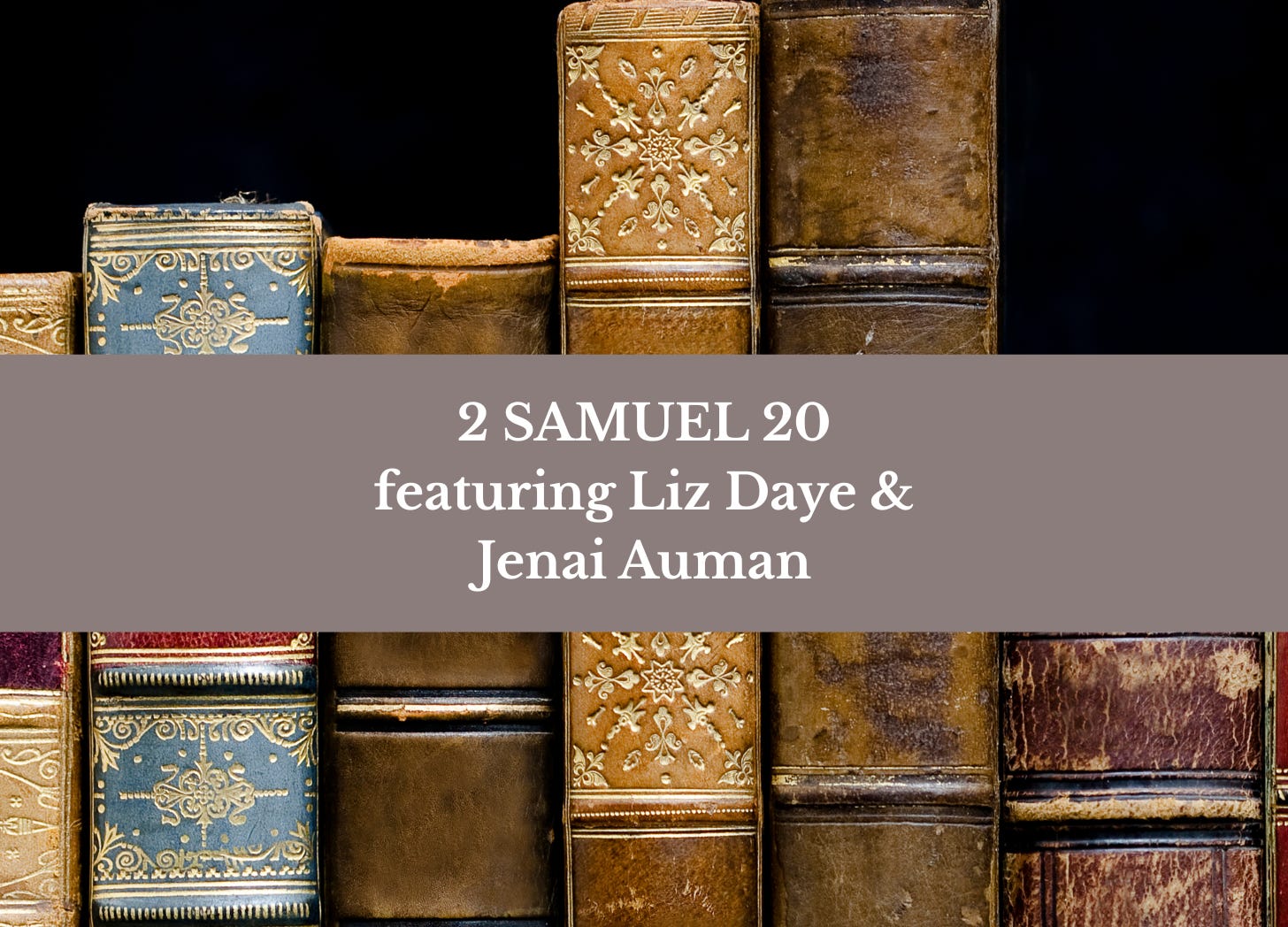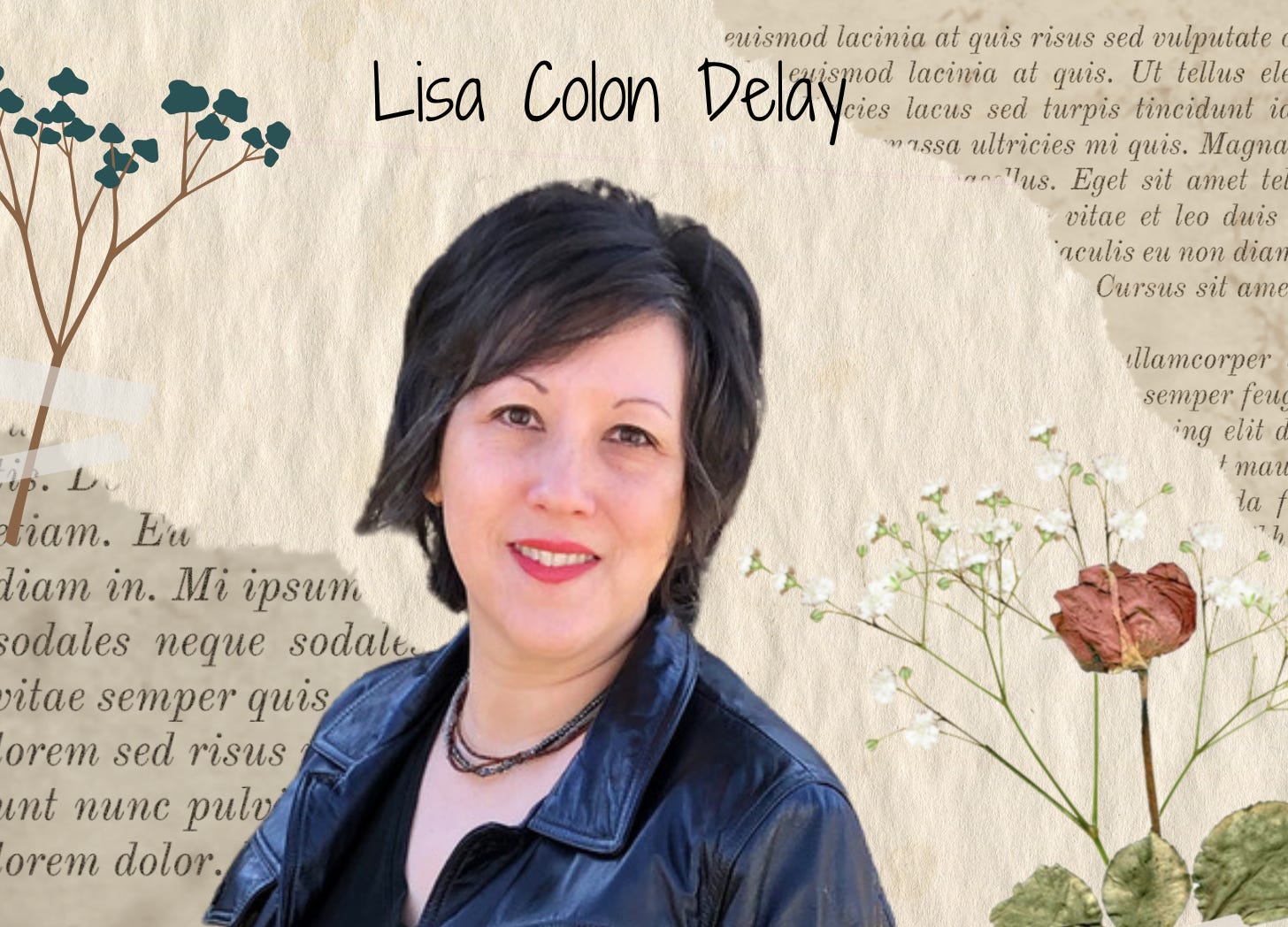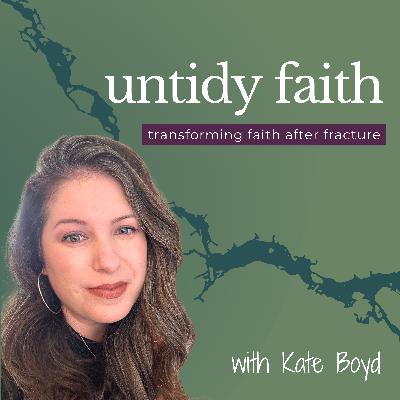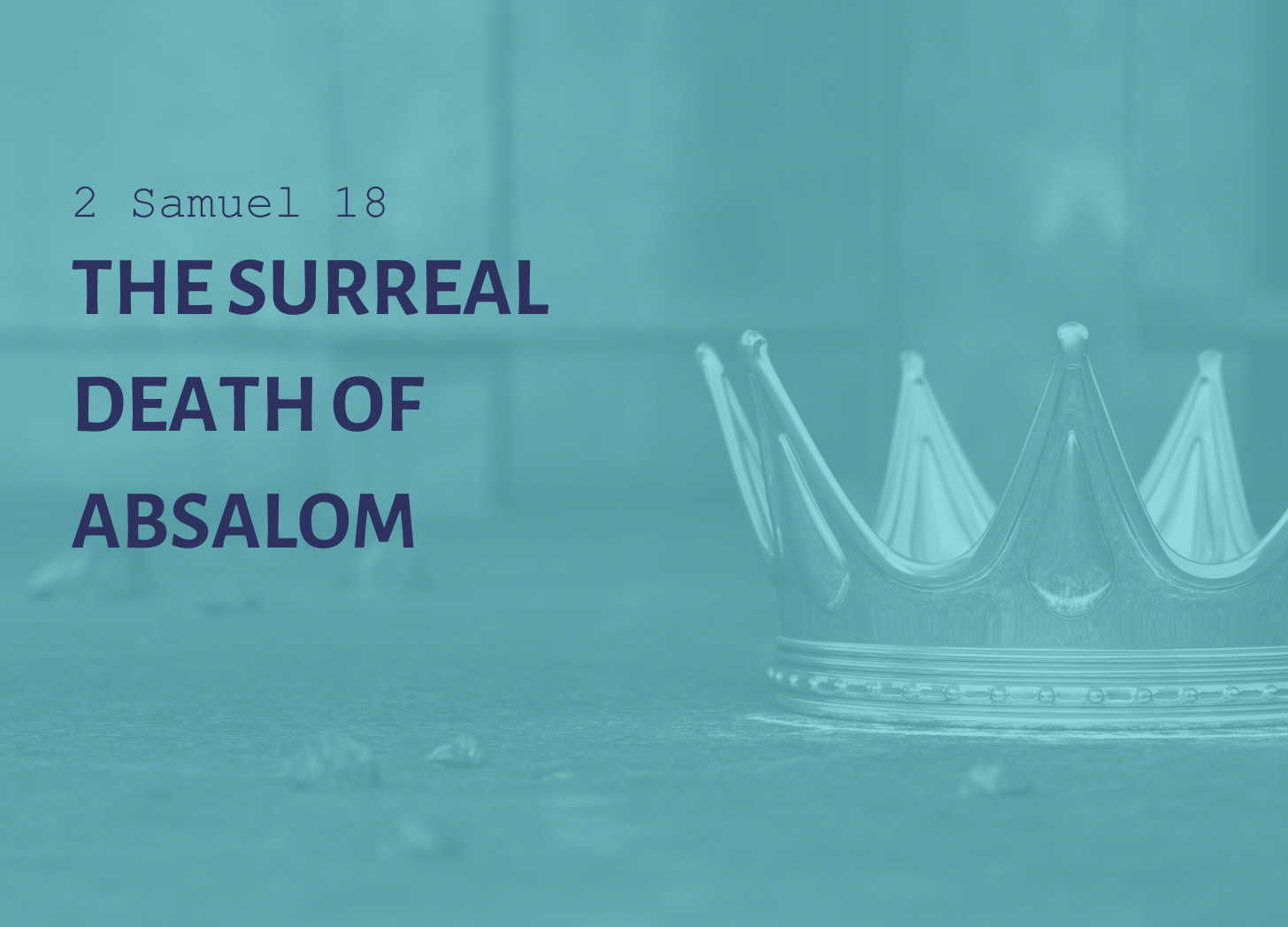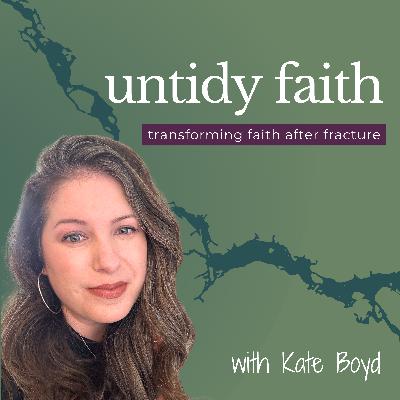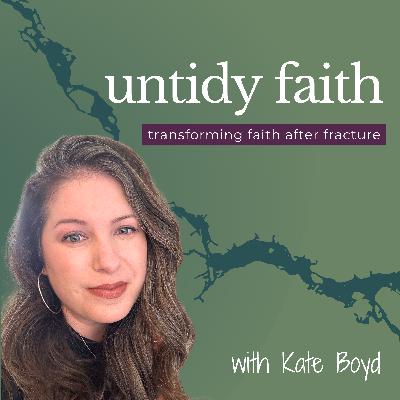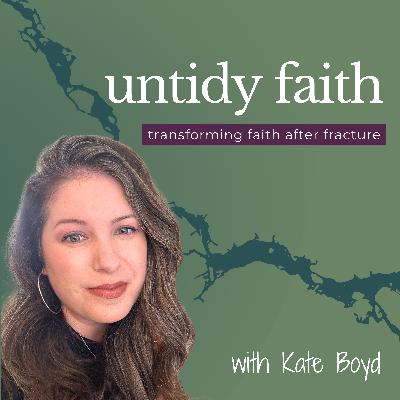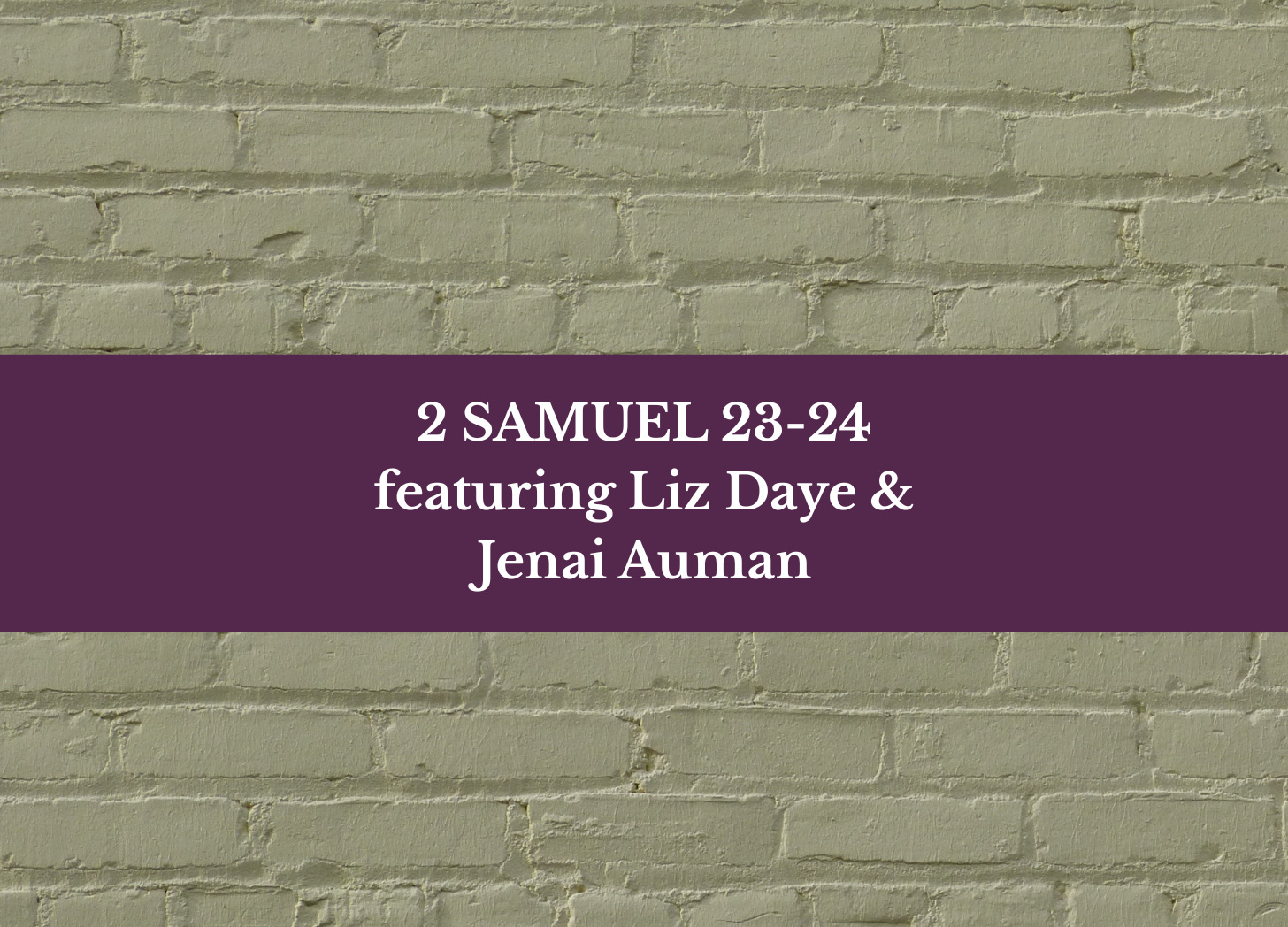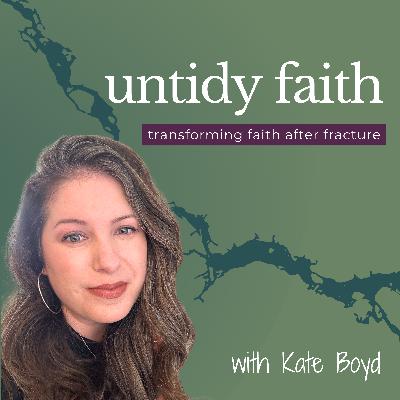Discover Untidy Faith
Untidy Faith

Untidy Faith
Author: Kate Boyd
Subscribed: 33Played: 633Subscribe
Share
© Kate Boyd
Description
Transforming faith after fracture
The Untidy Faith podcast is where we have honest conversations and gentle encouragement for when following Jesus gets messy.
Join your host, Kate Boyd - author, speaker, and gentle guide for Christians who are disentangling their faith from culture, rebuilding their relationship with Scripture, and desiring to find joy in following Jesus again - each week to find your life and faith after deconstruction.
kateboyd.substack.com
The Untidy Faith podcast is where we have honest conversations and gentle encouragement for when following Jesus gets messy.
Join your host, Kate Boyd - author, speaker, and gentle guide for Christians who are disentangling their faith from culture, rebuilding their relationship with Scripture, and desiring to find joy in following Jesus again - each week to find your life and faith after deconstruction.
kateboyd.substack.com
150 Episodes
Reverse
Content Warning: Sexual assault, violencePower, betrayal, and justice collide as David’s reign looks like it’s unraveling, and as he grasps for allies, we see just how far some will go to keep what they believe to be theirs.Join us to explore how systems of power perpetuate cycles of harm — as in the case of Mephibosheth and the women left behind — and how empires shape the people within them (intentionally and unintentionally).And how do the teachings of Jesus in the Sermon on the Mount offer us an alternative pattern to follow?Timestamps:01:46 Recap of Mephibosheth and Ziba 03:42 David's Encounter with Shimei 04:29 Absalom's Strategy and Betrayal 05:33 Reflections on Justice and Injustice 14:25 The Cycle of Harm and Power 30:29 The Role of Disabled People in Scripture 36:18 Takeaways This is a public episode. If you'd like to discuss this with other subscribers or get access to bonus episodes, visit kateboyd.substack.com/subscribe
In this episode of the Untidy Faith Podcast, Kate Boyd sits down with Jared Stacy, author of the forthcoming book Reality in Ruins, for a nuanced conversation about why conspiracy theories have become so pervasive in evangelical Christianity and what the church can do about it.This isn’t just about QAnon or stolen elections—it’s about understanding how evangelicalism’s theology of persecution, end-times anxiety, and individualism creates fertile ground for conspiracism, and how reclaiming the whole story of Jesus offers a way forward that doesn’t require us to become fact-checkers but truth-tellers in our own key.Topics Covered* Understanding conspiracy theory as “functional reality” that provides people not just a lens for interpreting the world but prescribes specific actions—like how belief in a stolen election motivated the January 6th Capitol attack* Why evangelicals are particularly susceptible to conspiracy thinking: the combination of persecution complex, end-times theology giving conspiracies a “theological charge,” and modern individualism that seeks control through claiming secret knowledge* How evangelicalism’s witness to the gospel grants conspiracy theories plausibility by packaging spurious claims as “what good faithful Christians believe,” making it feel like apostasy to question them rather than just correcting misinformation* The historical pattern of conspiracy theories serving evangelical responses to cultural anxieties—from George Whitfield using gospel preaching to prevent slave revolts, to Cold War anti-communism, to contemporary fears about losing white Christian America* Why confronting conspiracy theories head-on with facts or mockery only leads to deeper entrenchment, and what questions like “why do you need this to be true?” or “why is that good news to you?” can open up instead* How the church can resist conspiracism not by becoming fact-checkers but by being constituted as Jesus’s body—a “place of reversal” where we discover we were wrong, rehearse the whole story of Jesus, and refuse to settle for anything less than recognizing full humanity in everyoneTimestamps: 01:00 Conspiracy Theory as Functional Reality 06:00 Why Evangelicals Are Susceptible to Conspiracy Thinking 12:00 The Theological Charge That Makes Conspiracies Plausible 18:00 Alternative Knowledge vs. Embodied Truth 24:00 Historical Anxieties Driving Conspiracy Theories 35:00 When Facts and Mockery Don’t Work 45:00 The Freedom to Be Wrong in Christian Community 54:00 Healthy Skepticism Without Conspiracy Thinking 1:03:00 The Church as Place of Transformation and Discovery 1:06:00 Finding Jared’s Work and Forthcoming Book This is a public episode. If you'd like to discuss this with other subscribers or get access to bonus episodes, visit kateboyd.substack.com/subscribe
In this episode of the Untidy Faith Podcast, Kate Boyd sits down with Dr. Beth Allison Barr, historian and author of The Making of Biblical Womanhood and Becoming the Pastor’s Wife, for a fascinating conversation about how the role of pastor’s wife has functioned to limit women’s leadership in the church.This isn’t just about theological debates—it’s about recognizing how economic anxieties, racial prejudice, and fear of losing privilege have repeatedly driven backlash against women’s independence throughout history, and how biblical language gets weaponized to justify keeping women in subordinate, unpaid positions.Topics Covered* How 2025 marks the 25th anniversary of the 2000 Baptist Faith and Message that encoded complementarian theology into Southern Baptist doctrine, and recognizing this as part of a historical pattern where women’s subordination rises during periods when women gain legal and economic independence* Understanding backlash against women’s ordination as rooted in cultural anxieties—particularly white anxiety about demographic changes and fears about losing economic privilege—rather than purely theological concerns about biblical interpretation* Why the pastor’s wife role has become “the primary ministry role model for women” in conservative churches, creating a safe space for women’s gifts while simultaneously keeping them under male authority and conditioning congregations to reject independent female leadership* The economic reality that women’s ministry is almost always expected to be unpaid volunteer work while men’s ministry comes with salaries and benefits, revealing how “noble calling” language masks structural inequality and devalues women’s contributions* How closely associating female leadership with marriage trains churches and broader culture to only accept women’s authority when it’s subordinate to men, contributing to resistance against women in business, politics, and other spheres beyond the church* What the church has lost by silencing women’s theological voices, contrasting with historical examples like Catherine of Siena convincing the Pope to return to Rome because medieval Christianity respected that “God spoke through women to men”Timestamps: 01:00 25 Years of Complementarian Theology’s Damage 05:00 Cultural Anxieties Driving the Backlash Against Women 10:00 How Economic Fears Shape Attitudes Toward Women’s Equality 14:00 The Pastor’s Wife Role as Gatekeeper to Female Leadership 19:00 Unspoken Expectations and Their Cost to Women 23:00 What the Church Loses Without Women’s Voices 28:00 Historical Hope: Women Who Never Stopped Speaking 32:00 Finding Beth’s Work and Resources This is a public episode. If you'd like to discuss this with other subscribers or get access to bonus episodes, visit kateboyd.substack.com/subscribe
In this episode of the Untidy Faith Podcast, Kate Boyd, Jenai Auman, and Liz Daye continue their exploration of 2 Samuel, examining chapters 21-22—a jarring collection of appendices that reveal David’s legacy through violence, political maneuvering, and self-congratulatory poetry.This isn’t a triumphant conclusion to David’s reign—it’s a sobering look at how powerful people rewrite history to justify harm, and how the quiet faithfulness of marginalized women like Rizpah often goes unnoticed while loud, self-serving declarations get preserved as “worship.”Topics Covered* Understanding the structural shift in 2 Samuel 21-24 from linear narrative to a collection of “appendices” that are deliberately out of chronological order, giving different perspectives and even contradicting earlier accounts like the story of who actually killed Goliath* How David responds to a three-year famine by asking the Gibeonites (not God) how to fix it, resulting in the execution of seven of Saul’s descendants—a solution that violates Torah patterns of repentance while serving David’s political interests by eliminating threats to his throne* The prophetic witness of Rizpah, a concubine who holds vigil over her sons’ desecrated bodies for six months, whose quiet faithfulness actually lifts the famine when David finally gives the bodies proper burial—yet most major commentaries ignore her story entirely* Why the famous contradiction about Goliath’s death (attributed to Elhanan here rather than David) reveals how stories were shaped to serve David’s propaganda, showing us that “history favors the victor” and inviting us to read with suspicion* Examining David’s Psalm in chapter 22 as an unreliable narrator’s self-congratulatory rewriting of history, claiming blamelessness and righteousness while celebrating violence and conquest that directly contradicts Torah values and God’s vision for leadership* How hyper-spiritualizing language gets weaponized to justify harm—from David’s beautiful words masking brutal actions to modern Christian nationalism using similar rhetoric to consolidate power while claiming God’s blessing on violence and oppressionTimestamps: 01:00 Chapter 21: Famine, Gibeonites, and Political Pragmatism 06:00 David’s Solution: Execution Instead of Repentance 12:00 Rizpah’s Vigil: Six Months of Prophetic Witness 18:00 Why Most Commentaries Erase Rizpah’s Story 24:00 The Goliath Contradiction and David Propaganda 33:00 Chapter 22: David’s Self-Congratulatory Psalm 42:00 Rewriting History: When Beautiful Words Mask Violence 52:00 Context Matters: Why We Can’t Proof-Text Our Way Through 59:00 Reading with Suspicion and Through the Lens of Torah 1:04:00 Loud Posturing vs. Quiet Faithfulness 1:10:00 Finding the Hosts Online This is a public episode. If you'd like to discuss this with other subscribers or get access to bonus episodes, visit kateboyd.substack.com/subscribe
In this episode of the Untidy Faith Podcast, Kate Boyd sits down with Mandy Capehart, author of Restorative Grief, for an intimate conversation about how faith deconstruction is actually a complex grief process that affects every dimension of our lives.This isn't just about changing your theology—it's about recognizing that when we deconstruct faith, we're grieving the loss of safety, belonging, community, identity, and even our relationship with our own bodies. Mandy offers a compassionate framework for understanding why this process is so difficult and how healing can happen holistically.Mandy Capehart is a grief educator, somatic practitioner, and author of Restorative Grief. She hosts the Restorative Grief podcast and leads the Restorative Grief Project, a supportive online community. Her work focuses on helping people understand grief as a holistic experience that involves heart, mind, body, and spirit.Topics Covered* Understanding faith deconstruction as a layered grief process that involves losing "the systems and structures that have really shaped our sense of safety, belonging, and community," not just changing beliefs about theology or biblical interpretation* How leaving faith communities mirrors other major life transitions like divorce or coming out, particularly when "we have disrupted our foundation" and can no longer rely on our faith as the solid rock during other difficulties* The difference between fitting in and true belonging, and how many people discover they were conditionally accepted in their faith communities only when they could edit themselves to match expectations rather than bring their full selves* Why intellectualizing deconstruction can become a protective strategy that creates "an illusion of control" while avoiding the necessary work of processing how these changes affect us emotionally and somatically in our bodies* How faith communities often suppress connection to our physical selves, leading to embodied symptoms like "tightness in their throat, in their chest" and the inability to speak authentically when our voices have been deemed unsafe or invalid* The transformative power of learning to "take up space" and speak with authenticity, even when it means risking correction or disagreement, and finding safety in being humbled while maintaining belongingTimestamps: 01:00 What Are We Actually Grieving in Faith Deconstruction? 05:00 Beyond Theology: How Environment and Values Shape Us 11:00 Why Faith Deconstruction Looks Like Divorce 18:00 Grieving Community and the Loss of Belonging 23:00 Identity Grief: When Labels and Roles No Longer Fit 29:00 How Grief and Transition Show Up in Our Bodies 36:00 Learning to Take Up Space and Use Our Voices 40:00 Restorative Grief: Finding Safety in the Eye of the Storm 47:00 Finding Mandy's Work and Resources This is a public episode. If you'd like to discuss this with other subscribers or get access to bonus episodes, visit kateboyd.substack.com/subscribe
In this episode of the Untidy Faith Podcast, we continue our deep dive into 2 Samuel with Kate Boyd, Jenai Auman, and Liz Daye — examining chapter 20 and its stark contrasts between violence and peacemaking, power and wisdom.This isn't just ancient history—it's a cautionary tale about what happens when leaders prioritize power over God's vision of shalom, and how the pursuit of control creates systems that harm the most vulnerable while claiming to restore order.Topics Covered* How Sheba's rebellion represents a more serious threat to David's kingdom than Absalom's revolt, with "all the men of Israel" deserting David and foreshadowing the eventual split of the kingdom that echoes this same rallying cry* Understanding Joab's brutal murder of Amasa as the physical embodiment of David's strategic manipulation—both men eliminate threats to maintain power, but Joab does openly what David orchestrates from behind the scenes* Examining the treatment of David's ten concubines as property that gets "handled" rather than cared for, showing how David's view of women as disposable objects extends from Michal to these women who are condemned to live "as widows until the day of their death"* The contrast between male violence and female wisdom through the unnamed "wise woman" who speaks in poetry to negotiate peace, representing the biblical pattern of women stepping up to end conflicts when men create chaos through their pursuit of power* How the concept of shalom differs from simple peace or absence of conflict—it represents "the harmony between things and the right relatedness of things," a holistic vision of flourishing that stands in stark opposition to David's hierarchical kingdom* Why the chapter's ending list of David's officials, including someone "over forced labor," reveals a kingdom that has abandoned God's Torah vision and adopted the oppressive practices of surrounding empires, directly contradicting Israel's identity as people freed from slaveryTimestamps: 01:00 Sheba's Rebellion: A More Serious Threat Than Absalom 03:00 Joab's Betrayal Kiss: Violence to Maintain Power 06:00 The Concubines: How David "Handles" Women as Property10:00 The Wise Woman: Poetry, Peace, and Maternal Protection 16:00 Shalom vs. Power: Two Visions of Community 24:00 God's Absence and the Politics of David's Kingdom 28:00 David as the god of Christian Nationalism 33:00 Reading Narrative as Literature: Seeing the Bigger Picture This is a public episode. If you'd like to discuss this with other subscribers or get access to bonus episodes, visit kateboyd.substack.com/subscribe
In this episode of the Untidy Faith Podcast, Kate Boyd sits down with Rohadi, author of When We Belong, for a provocative conversation about the difference between progressive Christianity and truly decolonized faith.This isn't about finding a more liberal church or updating your theology—it's about fundamentally reimagining what liberative community looks like when we center marginalized voices and embody radical love ethics in our neighborhoods and daily lives.Rohadi is an author, speaker, and community leader who focuses on decolonizing Christianity and embodied spiritual practices. He leads an online faith community called A Beautiful Table and hosts the podcast series "Farewell Evangelicalism." His upcoming book on embodied meditations will be released in 2026.Topics Covered* Why leaving white evangelicalism for progressive or liberal churches often replicates the same harmful patterns, as recent data shows most "liberal" denominations still vote majority Republican and maintain foundational issues with ableism and white supremacy* Understanding how evangelical formation is designed to control bodies, particularly women and children, and why those who don't conform to white male, cisgender, able-bodied norms will "never belong fully" regardless of theological adjustments* The crucial difference between knowledge and embodied wisdom—why reading books about justice isn't the same as participating in liberative community that seeks "right repair unto right relationship" with land, people, and resources* How decolonizing faith requires listening to indigenous voices and resistance movements specific to the land where your feet touch, rather than seeking universal solutions or centering white voices in leadership* Exploring embodied spiritual practices like body scans and breath work that help reclaim the body after evangelical teachings that promote distrust and disconnection from physical experiences and emotions* Why truly liberative communities are found "on the margins"—in recovery churches, queer churches, and racialized communities—and how white people can join existing movements without needing to lead or start their own organizationsTimestamps: 01:00 Beyond Evangelicalism: Progressive vs. Decolonized Faith 04:00 How Evangelical Formation Controls Bodies and Margins 09:00 The Lifelong Process of Unlearning White Supremacist Patterns 14:00 Moving Slow: Relationships, Grief, and Embodied Wisdom 21:00 Living in Tension: Safety, Community, and Vulnerability 26:00 Whose Traditions? Questioning Christian Orthodoxy and Authority 33:00 Embodying Radical Love Ethics in Local Context f37:00 Finding Rohadi's Work and Resources This is a public episode. If you'd like to discuss this with other subscribers or get access to bonus episodes, visit kateboyd.substack.com/subscribe
In this episode of the Untidy Faith Podcast, Kate Boyd sits down with Lisa Colon DeLay, author of The Way of the Desert Elders, for an illuminating conversation about ancient Christian wisdom that speaks directly to modern faith struggles.This isn't just church history—it's a roadmap for Christians navigating the tension between empire and authentic discipleship, offering embodied practices for healing religious trauma and rebuilding faith after deconstruction.Lisa Colon DeLay is a pastor, author, and host of the Spark My Muse podcast. Her work focuses on spiritual formation and connecting modern Christians with ancient wisdom traditions. She's also the author of The Wild Land Within and offers resources for spiritual practices rooted in early Christian traditions.Topics Covered* How the Desert Fathers and Mothers (300-600 AD) responded when Christianity became corrupted by political power and empire, creating communities that prioritized devotion over career advancement and cultural status* Understanding the nine "afflicting thoughts" (later developed into the seven deadly sins) as a holistic framework addressing body, mind, and spirit—not moral failings but predictable challenges that arise when pursuing spiritual growth* Why healing from religious trauma requires embodied practices, not just cognitive processing, and how ancient spiritual disciplines can help integrate the physical, emotional, and spiritual dimensions of faith* The essential role of spiritual mentorship in faith reconstruction, contrasting the Desert tradition of pairing every seeker with a spiritual mother or father against modern evangelicalism's individualistic approach to spiritual growth* Exploring the practice of "vigil"—waiting expectantly on God as an active spiritual discipline that reorients us from productivity-based faith to relationship-based presence with the divine* How ancient wisdom addresses modern challenges like spiritual overwhelm, digital distraction, and the temptation of "acedia" (spiritual boredom), offering practices for slowing down and creating space for intimacy with GodTimestamps: 00:52 Who Were the Desert Fathers and Mothers? 02:00 Empire and Faith: When Church Meets Political Power05:00 Embodied Spirituality vs. Head-Centered Faith 09:00 Rebuilding Faith Through Ancient Community Models 13:00 The Nine Afflicting Thoughts: Body, Mind, Spirit 18:00 What Would Concern and Encourage the Desert Elders Today? 21:00 Productivity vs. Faithfulness: Redefining Spiritual Success 26:00 The Practice of Vigil: Active Waiting on God 30:00 Finding Lisa's Work and Resources This is a public episode. If you'd like to discuss this with other subscribers or get access to bonus episodes, visit kateboyd.substack.com/subscribe
In 2 Samuel 19, we witness David's complicated return to power after Absalom's death—a chapter that reveals the messy intersection of grief, politics, and justice. Through three pivotal encounters on his journey back to Jerusalem, we see how David's approach to leadership prioritizes political expediency over genuine justice, particularly in his heartbreaking dismissal of Mephibosheth's legitimate grievances. This chapter serves as a sobering preview of the kingdom's coming division, showing us the cost of leadership that values loyalty over righteousness and efficiency over authentic relationship.Topics We Cover* How David's public mourning for Absalom gets shut down by Joab, leading to immediate political maneuvering that reveals the performative nature of his subsequent "mercy"* Examining David's encounters with Shimei (performative forgiveness), Mephibosheth (dismissive injustice), and Barzillai (transactional loyalty) as a study in how power corrupts discernment* Why David's unjust ruling that divides Saul's land represents both a violation of Torah justice and literary foreshadowing of the kingdom's eventual split* How David's calculated mercy exposes a broader cultural pattern of transactional relationships that prioritizes political gain over authentic love and loyalty* Exploring how David's "move fast and break things" approach to leadership reflects systems that value efficiency over people, ultimately fracturing both family and kingdomTimestamps:01:42 David's Return to Jerusalem05:13 David's Grief and Political Maneuvering10:05 Joab's Role and David's Struggles13:33 Generational Trauma and Loyalty19:51 David's Strategic Forgiveness25:20 Chronological and Literary Analysis27:02 The Impact of David's Actions on Mephibosheth30:11 David's Strategic Kindness and Manipulation33:58 The Exhaustion of Maneuvering in a Toxic System38:39 Foreshadowing the Split of the Kingdom44:43 Takeaways This is a public episode. If you'd like to discuss this with other subscribers or get access to bonus episodes, visit kateboyd.substack.com/subscribe
In this episode of the Untidy Faith Podcast, Kate Boyd sits down with Rev. Dr. Malcolm Foley, author of The Anti-Greed Gospel, for a bold conversation about money, power, and faith that most churches avoid. This is about more than stewardship. It's a prophetic call to reimagine what Christian community could look like when we take Jesus' economic teachings seriously.Rev. Dr. Malcolm Foley serves as special advisor to the President for equity and campus engagement at Baylor University and co-pastors Mosaic Waco, an intentionally multicultural church in Waco, TX. He has written for Christianity Today, The Anxious Bench, and Mere Orthodoxy.Topics Covered* Understanding how Jesus identified money/riches as the primary rival to God for human devotion, and why this spiritual reality demands material responses in how we live and share resources* How the pursuit of cheap labor and expanded markets drove the development of racial categories as justification for exploitation, creating what Foley calls "a demonic cycle of self-interest"* Exploring how American Christianity has separated racial justice from economic justice, focusing on generosity and stewardship while avoiding discussions of greed, class, and systemic exploitation* The difference between generous giving that maintains power imbalances and true solidarity that seeks equality and mutual exchange, as modeled in 2 Corinthians 8* How to read texts like the Sermon on the Mount without softening their radical economic demands, believing that "by the Spirit we can" live into Jesus' vision of community sharing and mutual careTimestamps:00:52 Discussing Money and Greed in the Bible01:37 Mammon and Its Implications03:03 Greed, Generosity, and Economic Justice10:26 Historical Context of Greed and Racism16:09 Economic Justice and the Church's Role24:36 Concluding Thoughts and Encouragement This is a public episode. If you'd like to discuss this with other subscribers or get access to bonus episodes, visit kateboyd.substack.com/subscribe
In this episode of the Untidy Faith Podcast, host Kate Boyd sits down with Julia Rocchi to explore how design thinking principles can transform our approach to spiritual questioning. Julia, a practicing Roman Catholic with expertise in design thinking and facilitation, shares how asking better questions—rather than seeking definitive answers—can deepen our faith journey and create space for mystery and growth. This conversation offers practical tools for those navigating doubt, deconstruction, or simply wanting to cultivate a more curious and expansive relationship with God.Topics Covered* Design Thinking Meets Faith: How principles from design thinking—particularly the art of asking strong, open-ended questions—can enhance spiritual exploration and move us beyond binary thinking* Questions as Tools, Not Threats: Reframing spiritual questioning as complementary to faith rather than opposing it, and understanding how curiosity can foster humility, compassion, and spiritual growth* The Design Thinking Examen: A practical, step-by-step spiritual practice that adapts traditional Ignatian reflection with design thinking principles to help process life's challenges through productive questioning* Community and Embodied Faith: The vital role of community in spiritual questioning, including how sharing questions out loud transforms them and how healthy faith communities can enhance rather than restrict our spiritual curiosity* Productive Tension in Prayer: Embracing discomfort and uncertainty as valuable aspects of spiritual practice, learning to sit with questions rather than rushing toward answersTimestamps:01:47 Understanding Design Thinking05:10 The Power of Questions in Faith12:58 Design Thinking Tactics for Spiritual Growth16:35 Incorporating Questions into Spiritual Practice22:42 The Role of Community in Spiritual Questions This is a public episode. If you'd like to discuss this with other subscribers or get access to bonus episodes, visit kateboyd.substack.com/subscribe
In this episode of the Untidy Faith Podcast, host Kate Boyd welcomes back guest Sharifa Stevens to discuss her new book about prayer and poems. Their conversation explores how many Christians struggle with barriers to authentic prayer, often feeling they must approach God in a "perfect" way. Sharifa shares her journey toward understanding that there's no wrong way to bring our full selves to God, and how harmful theology has created unnecessary barriers between believers and authentic spiritual connection.Sharifa Stevens is a writer, poet, speaker, and singer. She is the daughter of Jamaican immigrants, born and raised in New York, and currently resides with her family in Dallas, Texas. She graduated from Columbia University in New York with a bachelor’s degree in African American Studies before earning a master’s in theology from Dallas Theological Seminary. Sharifa aspires to use writing as a vehicle that moves readers to intersect with the sacred and the honest. She co- authored Only Light Can Do That and contributed to the books Vindicating the Vixens, Rally, and Lecrae’s upcoming Set Me Free. Sharifa is married to a Renaissance man and is a mother to two lively boys.Topics Covered:* Barriers to prayer that many experience, including the feeling that we can't approach God with certain struggles or that we need to be in an "almost heavenly state of being" to pray* How performance-based faith and "worm theology" (focusing on our unworthiness) creates voids in our relationship with God and prevents authentic connection* The impact of gender on spiritual experiences, particularly how women are often infantilized in church contexts and discouraged from spiritual autonomy* How our bodies often signal when we're holding back parts of ourselves due to fear, and why vulnerability can be difficult after negative experiences* The value of written prayers and spiritual resources that give us language when we can't find our own words to express our experiences to GodTimestamps:02:06 Understanding Prayer and Barriers06:14 Personal Experiences with Prayer08:53 The Impact of Theology on Self-Perception21:34 The Role of Women in Faith and Society27:12 Jesus and His Treatment of Women28:34 Modern Conversations on Women's Roles30:03 The Impact of Bad Theology35:18 Navigating Faith and Mental Health38:46 The Importance of Community and Self-Trust44:04 Embracing Emotions and Coping Mechanisms46:35 The Role of Compassion in Faith This is a public episode. If you'd like to discuss this with other subscribers or get access to bonus episodes, visit kateboyd.substack.com/subscribe
In this episode, we dive deep into one of the most bizarre and tragic chapters in the David narrative - the death of Absalom. Set against the backdrop of a father-son civil war, 2 Samuel 18 tells the surreal story of Absalom getting caught in a tree while riding a mule, and Joab's brutal decision to kill him despite David's explicit command to "deal gently" with his son. We explore the literary complexity of this text, including surprising parallels to Jesus' death, the politics of empire, and the profound cost of unchecked power dynamics within families and kingdoms.Topics Covered* The absurd circumstances of Absalom's death - How Absalom gets stuck in an oak tree while riding a mule and the darkly comic elements that make this biblical narrative so memorable* Literary parallels between Absalom and Jesus - The striking similarities including hanging from a tree, betrayal, burial under stones, and the presence of multiple messengers racing to deliver news* Joab's defiance and the exploitation of the Cushite messenger - How Joab deliberately ignores David's command and sends a foreign messenger (the Cushite) to deliver the devastating news, highlighting issues of belonging and exploitation of marginalized people* David's dual role as king and father - The tension between David's political needs as a ruler and his emotional devastation as a father, including the shift from calling Absalom "the young man" to "my son"* The broader costs of empire and injustice - How this tragic family drama reflects larger themes about the price of power, the perpetuation of cycles of violence, and the missed opportunity to address injustice against Tamar that started the whole conflictTimestamps:01:09 Recap of David and Absalom's Conflict02:07 The Battle and Absalom's Fate03:17 Joab's Defiance and Absalom's Death04:40 The Aftermath and David's Mourning05:26 Literary Parallels with the Crucifixion21:12 Joab's Role and the Cushite Messenger27:17 David's Dual Roles and Moral Dilemmas32:18 Takeaways This is a public episode. If you'd like to discuss this with other subscribers or get access to bonus episodes, visit kateboyd.substack.com/subscribe
Join Kate and Liz Charlotte Grant as they explore how to approach Scripture when traditional, literal interpretations no longer serve believers who are deconstructing or reframing their faith. Grant shares her journey of finding new ways to engage with biblical texts through literary analysis, diverse commentators, and interdisciplinary connections.Liz Charlotte Grant is an award-winning essayist, author of the Empathy List substack, and her debut book, a personal, interdisciplinary commentary on the book of Genesis, Knock at the Sky: Seeking God in Genesis After Losing Faith in the Bible is available now.Topics Covered:* How traditional methods of reading the Bible, especially within White American Evangelicalism, have been limiting and sometimes harmful, and why new approaches are needed for those reframing their faith* The importance of diverse voices in biblical interpretation, particularly from women, people of color, and other historically excluded groups who offer fresh perspectives beyond the dominant white male theological tradition* Grant's creative approach to Genesis through interdisciplinary connections—linking biblical stories to art, science, and literature to illuminate scripture in new ways* The distinction between factual accuracy and deeper truth in scripture, and why approaching the Bible through a literary lens can reveal profound insights without requiring historical literalism* Practical advice for those wanting to re-engage with the Bible after deconstruction, including starting with commentaries, trusting your own reading, and creating a diverse "table" of interpretive voicesGrant's book uses creative writing and non-traditional sources to approach Genesis with fresh eyes, demonstrating how scripture can remain meaningful even after one's relationship with the Bible has fundamentally changed.Timestamps:01:12 Reframing Faith and Reading the Bible01:49 Challenges of Traditional Biblical Interpretation04:43 The Importance of Diverse Perspectives10:18 Creative and Literary Approaches to the Bible11:19 Truth vs. Historicity in Biblical Texts17:12 Why Return to the Bible?18:06 The Making of the Bible: A Complex Process19:57 The Sinai Sisters: Manuscript Hunters23:19 Catherine Bushnell: A Pioneer for Women in the Bible26:41 Judith Butler: An Artist's Voice32:24 Reengaging with the Bible: Tools and Tips This is a public episode. If you'd like to discuss this with other subscribers or get access to bonus episodes, visit kateboyd.substack.com/subscribe
In this enlightening episode of the Untidy Faith Podcast, host Kate Boyd sits down with Jennifer Layte to explore the concept of stages of faith. Despite many Christians being taught that faith is static or linear, Jennifer shares insights from both James Fowler's modern framework and Teresa of Avila's 16th-century "Interior Castle" to help listeners understand that spiritual growth naturally involves distinct phases and transitions. This conversation offers comfort and clarity for those navigating their own changing relationship with Jesus, especially during periods of deconstruction or spiritual uncertainty.About Jennifer:Jennifer A. G. Layte is a pastor, author of two published novels, and founder of The Pilgrimage—a Jesus-centered online spiritual formation community, created especially to tend to the stories of those who have been hurt by the church or are otherwise struggling in their faith.Jennifer’s training and certification as an Advanced Practice Board Certified Chaplain, a spiritual director, and an ordained pastor have provided her with unique opportunities to work with diverse (on just about every metric) groups of people. The human stories she carries and the ways she has found to shepherd people through the difficult parts of those stories directly influence her writing. Meanwhile, her formal background in literature and theology gives her imaginative ways of retelling the stories of the Bible and of others, encouraging people to live within their own stories better.Jennifer and her husband Paul live in New England with their two adorable rescue dogs, an impressive garden, and, to their fascination but not always delight, an astonishing array of wildlife.Website and Social Media LinksJennifer’s Book Followerhttps://jenniferaglayte.comhttps://the-pilgrimage.orghttps://linktr.ee/jenniferaglayteTopics Covered:* Castles, Mansions, and Soul Work: Discover the fascinating historical frameworks for understanding faith transitions, from a 16th century nun's "Interior Castle" to modern psychological approaches* "I'm Not Sure God Is Anywhere": Why those terrifying spiritual dry spells might actually be doorways to deeper faith, and how knowing about stages can help you not panic when they arrive* When Church Activism Isn't Enough: Jennifer reveals the significant transition that many Western Christians are experiencing today, and why moving beyond the "busy doing" phase often feels so disruptive* Same Beliefs, Different Grip: How you might end up believing many of the same things but holding them completely differently—and why Jennifer went from firmly opposing women pastors to becoming one herself* Loving Across the Divide: Practical wisdom for those moments when you want to scream "Oh my God, what are these people thinking?"—and how to create meaningful connections with those in different faith stagesTimestamps:00:47 Stages of Faith: An Overview14:11 Challenges in Faith Transitions20:58 The Importance of Growth in Faith22:03 Evolving Beliefs and Perspectives28:37 Balancing Tradition and Change29:59 Engaging with Jesus in Faith32:49 Loving Others in Different Stages35:07 Grace in Imperfection This is a public episode. If you'd like to discuss this with other subscribers or get access to bonus episodes, visit kateboyd.substack.com/subscribe
In this episode of Untidy Faith, we dive into a thoughtful conversation with MaryB. Safrit about the valuable perspectives and insights that LGBTQ+ Christians bring to faith communities. MaryB. shares her personal journey and wisdom on how straight Christians can learn from queer believers to create more inclusive and authentic expressions of Christian community. This conversation explores misconceptions, reimagines church structures, and highlights the rich theological contributions that emerge from diverse experiences of faith.Topics Covered:* Misunderstandings and Misconceptions: Mary B discusses common misconceptions straight Christians have about LGBTQ+ believers, including assumptions about how queer Christians approach scripture and theology* Intimacy, Friendship, and Boundaries: How queer Christians have developed nuanced understandings of intimacy, attraction, and friendship that challenge harmful purity culture narratives and can benefit all Christians* Found Family and Chosen Community: The rich tradition of "found family" in queer communities offers powerful models for Christian community that transcend the nuclear family focus of many churches* Creating Truly Inclusive Churches: Practical insights for making church spaces welcoming through clarity, co-creation, and valuing all members beyond their perceived "usefulness" to church programs* Challenging Church Hierarchies: How moving away from corporate/business models of church toward more organic communities creates space for diverse gifts and voicesTimestamps:02:27 Misconceptions About LGBTQIA+ Believers05:12 Personal Journey and Challenges09:41 Lessons from the LGBTQIA+ Community17:36 Evolving Concepts of Family and Belonging28:57 Inclusivity in ChurchesAbout MaryB. Safrit:MaryB. Safrit is a New York City-based writer, merch maker, relationship coach, and host of the Found Family podcast. She is passionate about creating spaces and resources for folks who feel like the church doesn't know what to do with them. MaryB. is your friendly neighborhood bisexual and recovering people-pleaser who is currently in her goblin era. Follow her on Instagram and TikTok @maryb.safrit, and get on her Substack list at marybsafrit.substack.comWebsite and Social Media Links* https://www.marybsafrit.com/* https://www.instagram.com/maryb.safrit/* https://www.tiktok.com/@maryb.safrit* https://www.marybsafrit.com/shop This is a public episode. If you'd like to discuss this with other subscribers or get access to bonus episodes, visit kateboyd.substack.com/subscribe
In this episode, Kate explores the Wesleyan Quadrilateral as a valuable framework for reading and interpreting scripture. This approach offers a more balanced and holistic way to engage with the Bible, especially for those who are deconstructing or reconstructing their faith. Kate shares how this framework has transformed her own relationship with scripture, providing a more nuanced understanding that honors both the text and our lived experiences.Topics Covered:* The four components of the Wesleyan Quadrilateral: Scripture, Tradition, Reason, and Experience* How Scripture can be a primary authority without being the sole authority* Why acknowledging our traditions (whether formal or informal) enhances our biblical understanding* The importance of bringing reason, critical thinking, and modern knowledge to our reading* How personal and communal experiences enrich our interpretation of textsTimestamps:00:29 Exploring the Wesleyan Quadrilateral03:07 Scripture: The Primary Source05:58 Tradition: Learning from the Past12:01 Reason: Embracing Critical Thinking17:05 Experience: Personal and Communal Insights21:27 Applying the Wesleyan Quadrilateral This is a public episode. If you'd like to discuss this with other subscribers or get access to bonus episodes, visit kateboyd.substack.com/subscribe
In this episode of the Untidy Faith Podcast, Kate Boyd wraps up the year-and-a-half journey through 2 Samuel with returning guests Jenai Auman and Liz Daye, examining chapters 23-24—David’s self-congratulatory final words followed by a devastating census that reveals how little he’s actually learned.This isn’t a triumphant ending to a great king’s reign—it’s a sobering reminder that David’s version of greatness cost 70,000 lives, and his idea of repentance always came after profound devastation that somehow never seemed to affect him personally. The contrast between how David sees himself and what the text actually shows us is the perfect capstone to understanding power’s corruption.And a shoutout to Jon Pyle, Robert Callahan, and Amanda Waldron for being a part of the journey through books of Samuel!Topics Covered* How David’s “last words” in chapter 23 present his self-image as a just ruler bringing cloudless morning prosperity, immediately contrasted by the compilers listing “Uriah the Hittite” among his mighty men—a literary shade that reminds readers of David’s profound injustice* Understanding why David’s census in chapter 24 was such a violation: it risked ritual impurity for the entire nation, mimicked divine power (only gods counted in ancient cultures), and served as the first step toward military conscription, slavery, and exploitation* Why David’s choice of punishment—three days of plague affecting 70,000 people—reveals his continued pattern of self-protection, when he could have chosen three months of fleeing enemies with his “mighty men” that would’ve primarily affected him* The devastating reality that David “makes things right with God” through sacrifice but never repairs things with the people harmed by his choices, mirroring modern patterns where abusive leaders go on apology tours without addressing the actual devastation they caused* How the story ends not with David as hero but with God’s compassion for the land, contrasting David’s transactional understanding of hesed (loyalty) with God’s hesed (compassion)—showing what God actually values versus what David claimed to embody* Why paying attention to prophets and moving toward justice and shalom matters more than celebrating leaders who buy their own hype, and how David delivering Israel into bondage (the census taking nine months—a gestation period) inverts God’s role as deliverer from oppressionTimestamps: 01:00 David’s Self-Hype Poem vs. “Uriah the Hittite” 07:00 The Mighty Men List as Twilight End Credits 14:00 Why the Census Was Such a Big Deal 21:00 David’s Cowardly Choice: 70,000 Deaths 30:00 Repentance Without Repair to the Harmed 38:00 Spiritual Bypassing and Weaponized Forgiveness 47:00 The Angel Who Wouldn’t Stop Judging 55:00 Measuring Success by Empire vs. Jesus 1:04:00 Final Takeaways from the David Journey 1:06:00 Finding the Hosts and What’s Next This is a public episode. If you'd like to discuss this with other subscribers or get access to bonus episodes, visit kateboyd.substack.com/subscribe
Join us as we dive into 2 Samuel 17, examining the complex power dynamics between Absalom and David, the manipulative counsel given by advisors, and the troubling absence of God's voice amid human schemes for revenge and power.Topics Covered:* The contrast between Ahithophel and Hushai's advice to Absalom, and how manipulation through vanity and insecurity shaped Absalom's fateful decision* The recurring theme of women being unnamed and used as tools in men's power struggles, drawing parallels to other biblical stories of women subverting authority* How cycles of violence perpetuate when justice becomes corrupted by vengeance and personal agendas* The significant silence of God throughout this chapter, and what that silence might tell us about divine perspective on human power struggles* The way Absalom's initially pure motives for justice (regarding his sister Tamar) became corrupted through his pursuit of power and vengeanceTimestamps:01:06 Recap of 2 Samuel 1701:51 Discussion on Absalom's Coup05:58 Analyzing the Role of Women in 2 Samuel08:41 Theological Reflections and Modern Parallels25:55 Hospitality and Symbolic Significance in the Wilderness41:11 Takeaways and Final Thoughts This is a public episode. If you'd like to discuss this with other subscribers or get access to bonus episodes, visit kateboyd.substack.com/subscribe
In this episode, Tiffany Bluhm returns to the Untidy Faith Podcast to help us reframe self-care as an essential component of both personal wholeness and communal flourishing. Moving beyond the commercialized wellness industry, Tiffany offers a powerful perspective on how caring for ourselves in a world that doesn't is both biblical and necessary for creating meaningful social change. Drawing from biblical women and historical examples, she challenges the glorification of burnout and self-sacrifice prevalent in American church culture.In this episode we discuss:* How the American church has often discouraged self-care by celebrating and congratulating women who spend themselves until there's nothing left* The false dichotomy between self-care and self-sacrifice, and why they're actually "a tension to be managed, not solved"* How biblical women like Miriam demonstrate that self-care isn't a luxury only for the privileged but a necessary component of liberation* The powerful example of interned Japanese-American women during WWII who practiced communal self-care as resistance* Practical steps for beginning a self-care journey, including identifying what's missing in your life and what you need to let go ofAbout Tiffany BluhmTiffany Bluhm is a speaker and writer with more than fifteen years of experience in ministry and nonprofit leadership. She is the author of The Women We’ve Been Waiting For, Prey Tell, She Dreams, and Never Alone. Her work is at the intersection of faith and justice, and her writing has been featured in Publishers Weekly, Sojourners, the YouVersion Bible app, and more. She lives in the Pacific Northwest with her husband and two sons.Timestamps:00:51 Challenges of Self Care in the American Church01:33 Redefining Self Care03:49 Historical Examples of Self Care07:08 Communal Flourishing Through Self Care12:52 Practical Steps for Self Care27:48 Supporting Others in Their Self Care Journey29:36 Where to Find Tiffany Online This is a public episode. If you'd like to discuss this with other subscribers or get access to bonus episodes, visit kateboyd.substack.com/subscribe


